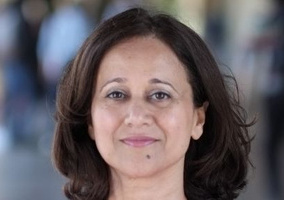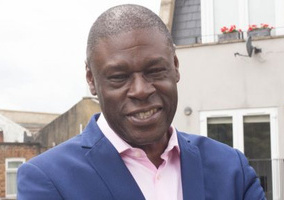Charity sector leaders have criticised the extent to which there is “tokenism” when it comes to diversity efforts in the sector and called for more action.
Speaking yesterday, Ruth Ibegbuna, CEO and founder of social action charity RECLAIM, said: “Within the charitable sector, we like to think that we’re hugely diverse, [that] we’re the good ones.
“But we’re not hugely diverse at all at the top of charity leadership, and quite often, there’s so much tokenism.”
At the Bayes Business School event, Ibegbuna went on to cite herself as an example, adding: “As a northern, state-school educated, Black woman, the amount of boards I’m asked to sit on.
“I’d like to think it’s because of my own natural brilliance, but I just wonder: how many boxes do I tick very quickly?”
EDI remains ‘optional extra’ for many charities
The sentiment of Ibegbuna’s comments was echoed by other panellists at the event, where the discussion focused on improving equity, diversity and inclusion (EDI) policies in the charity sector.
Paul Streets, former CEO of the Lloyds Bank Foundation, said the EDI agenda had “really cooled” in recent years and warned about a pushback from the new US government.
“It’s been used as a political to chastise the liberal left, and will continue to be so,” he said.
“We’ve seen that with extremists across the pond, and we know that what happens across the pond, can then come over here, so I think there’s a wake-up call there.”
Streets said EDI had “gone off the boil” in the charity sector, as well as in wider UK society.
“This awareness we’ve got in this sector doesn’t equal action too often,” he said.
“I think EDI is seen as an optional extra, carved off for somebody with a title in the organisation, and I’m ashamed of that.”
Disability representation
Streets later referred to the disparities between the experiences of different minoritised groups in charity leadership.
He said: “We may have broken a few gender glass ceilings, but the race glass ceiling looks to me to be pretty bulletproof to all but a very few people […] and when we look at disability, I’d say that glass ceiling is a concrete ceiling.”
Kamran Mallick, CEO of Disability Rights UK and a wheelchair user since early childhood, went on to highlight the “concrete ceiling” experienced by himself and many other disabled people working in the sector.
He said that it remains “overwhelmingly inaccessible” to them, with progression opportunities and workplace cultures continuing to exclude those with disabilities.
“Disability remains at best an afterthought, at worst, ignored,” said Mallick, adding that he had failed to see disability representation at senior levels, apart from his own charity, where a significant portion of staff have lived experience of disability.
Mallick added: “Decisions are being made without us [...] it’s about redesigning our systems so that everyone belongs from the very start.”
He advised that charities should avoid tokenism and set clearer targets for disability representation and avoid expecting their disabled employees and disability rights charities to shoulder all responsibility for increasing representation.
“It’s time to stop treating disability as a side issue […]. It’s not just a buzzword, but a reality for all of us,” he concluded.
Related articles












